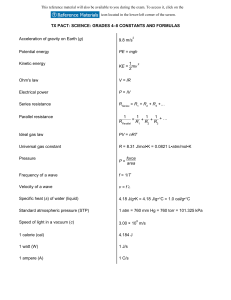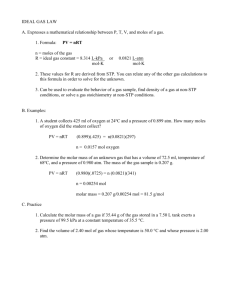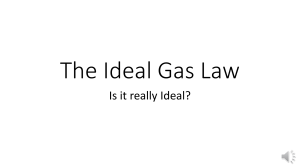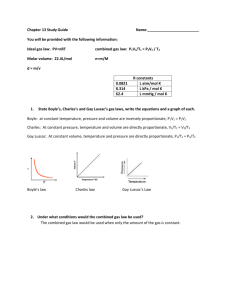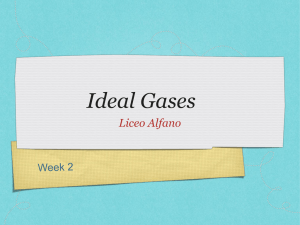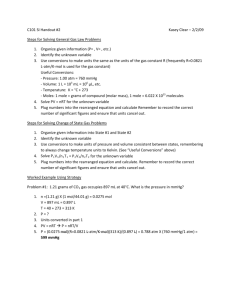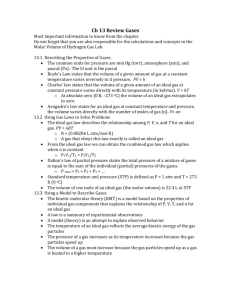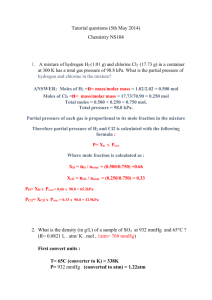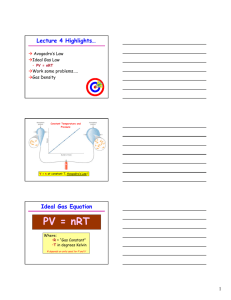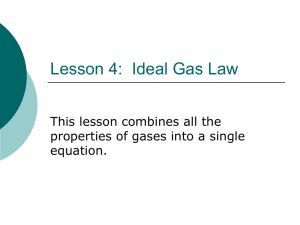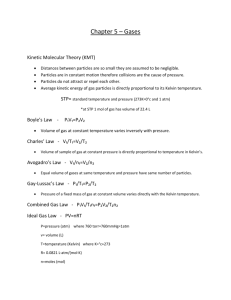The Ideal Gas Law
advertisement
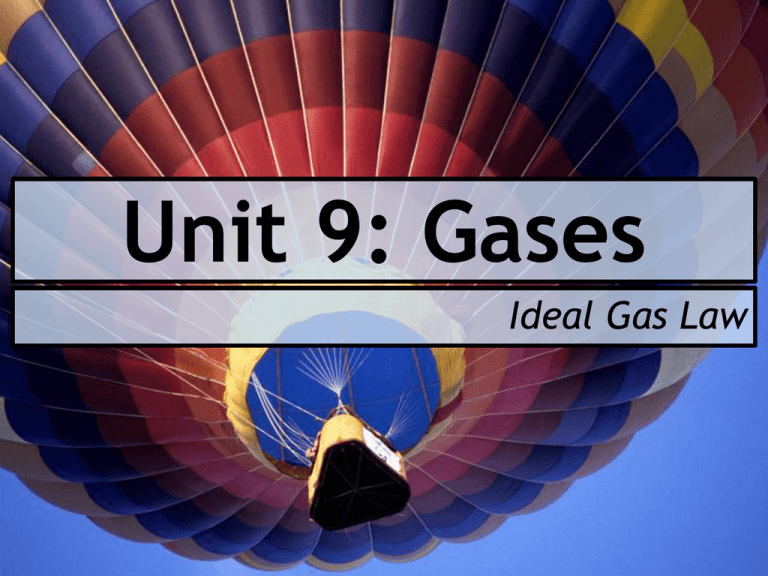
Unit 9: Gases Ideal Gas Law After today you will be able to… • Explain what an ideal gas is • Calculate an unknown pressure, temperature, volume, or amount of gas using the ideal gas law equation Ideal Gases •Ideal gases are gases that are said to follow all assumptions of kinetic molecular theory. •An ideal gas is also considered to conform to all gas laws. Ideal Gases •Up until now we have only changed variables such as pressure, volume, and temperature of a gas. •In each of these cases the amount of gas was assumed constant. •The combined gas law can be modified to include the amount of gas by including the variable, n. Ideal Gas Law This gas law relates the amount of gas (in moles) to the volume it would occupy at a particular temperature and pressure. Ideal Gas Law STOP! It is PV=nRT Where, often called P= pressure (atm) V= volume (L) the “picky” law! n= moles (mol) The units must be R= 0.0821 L·atm/mol·K T= temperature (K) see here! what you R is called the Ideal Gas Constant (it has multiple values, but for our purposes we will only use this one). Ideal Gas Law Example At what pressure would 0.212 mol of a gas occupy 6.84L at 89°C? PV=nRT P= ? (P)(6.84L)=(0.212mol)(0.0821)(362K) V= 6.84L P = 0.92atm n= 0.212mol R= 0.0821L·atm/mol·K T= 89°C + 273= 362K Ideal Gas Law Example At what temperature would 52.3g of methane (CH4) gas occupy 65.7L at 184kPa? PV=nRT P= 184kPa x 1 atm =1.82 atm 101.3kPa V= 65.7L 1 mol CH4 52.3gCH x n= = 3.26 mol CH4 4 16.05gCH4 R=0.0821L·atm/mol·K (1.82atm)(65.7L)= (3.26mol)(0.0821) (T) T= ? T = 447K
